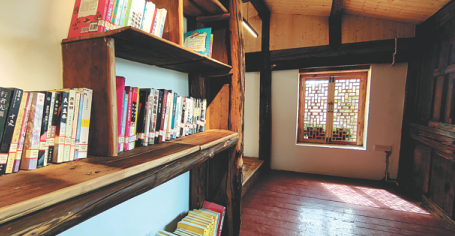

Li Xiaoyun who headed the team of experts quickly found Yanta's charm hidden among its old houses.
The rural properties looked worn out, but their original splendor, imbued with history, could hardly be concealed, Li says.
Li then held talks with the local authority and settled on a plan to protect the historical village and develop rural tourism.
They rented a 500-square-meter courtyard house and renovated it for creative culture, e-commerce, catering and homestay purposes.
Another idle house, around 200 square meters, has been turned into a homestay through a partnership between the rural cooperative and the house owner.
Moreover, Li encouraged villagers to plant various flowers to give the neighborhood a face-lift.
The idea is to highlight Yanta's agriculture and pastoral charm, featuring its pear orchards, while building a village history museum and a creative culture street to spice up local life.
"Every time I go to Yanta village, I see something different. It's changing all the time," Li says.
Distinctive rural tourism events, such as pear blossom and picking festivals, as well as fishing events, have been staged to get tourists involved in farming events.
Local villager Zhang Baoyou has cultivated a red pear plantation in his courtyard.
"Many people come to pick them," Zhang says.
It allows him to receive an income of about 100,000 yuan ($15,700) a year.
A logistics team has also been put together to take care of daily watering, fertilization and weeding for the green spaces across the village.
Moreover, the local authority has also guided more than 50 households in developing livestock and poultry breeding in areas that were previously unattended.
More than 900,000 chickens can be produced from those areas.
An e-commerce center has also been established and helps sell the pears, yams, eggs and honey produced in the village to urban areas.